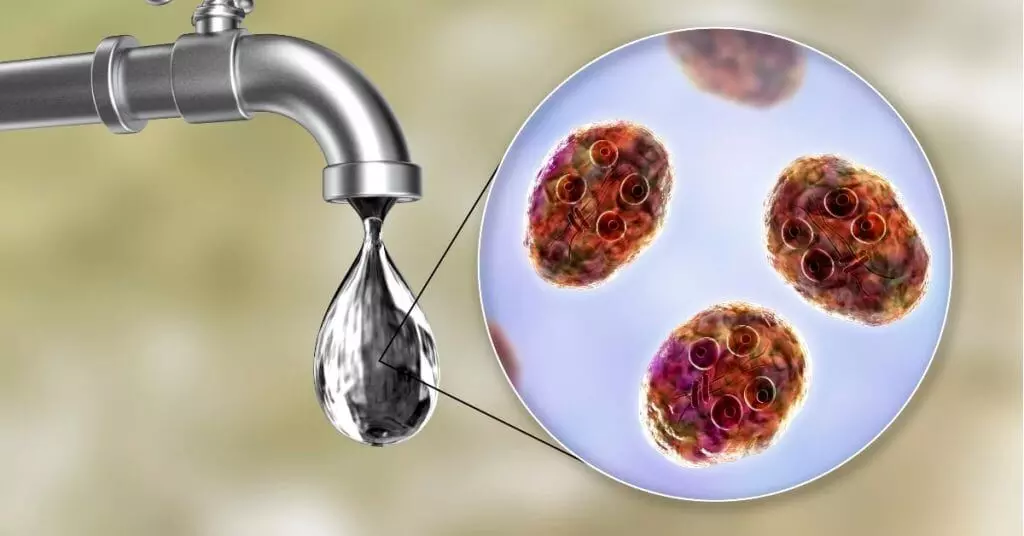Spike in Waterborne Illnesses

The problem of contaminated water continues despite other challenges. Each year, we witness an increase in waterborne illnesses, regardless of the time of year. This shows how important clean water and sanitation are.
Bengaluru: The problem of contaminated water continues despite other challenges. Each year, we witness an increase in waterborne illnesses, regardless of the time of year. This shows how important clean water and sanitation are.
Waterborne diseases propagate as harmful parasites or microorganisms contaminate water sources. These ailments can emerge due to diverse pathogens like viruses, bacteria, and protozoa. Examples of widely recognized waterborne diseases encompass cholera, typhoid fever, hepatitis A, giardiasis, leptospirosis, and dysentery.
These instances primarily concentrate within densely populated urban zones, particularly in areas with inadequate sanitation and suboptimal water drainage systems. Ingesting unwashed fruits, vegetables, and unwholesome foods can result in gastrointestinal infections. Moreover, bacteria such as E. coli and salmonella infiltrate the body via contaminated sustenance and water, culminating in fever and inflammation of the intestines. This procedure eventually results in blood and mucus in the stool, which in a large majority of these cases necessitates hospital care.
Anybody can get sick from waterborne sickness. Diarrhea, nausea, vomiting, fever, chills, headaches, and muscle discomfort are also common symptoms.
A significant portion of India's population lacks access to in-house water, raising infection risks. Contaminated surface water sources worsen the issue, as inadequate sewage disposal releases untreated waste into rivers and lakes, becoming breeding grounds for harmful microbes. Open defecation remains prevalent, introducing disease-causing bacteria to water and soil.
The looming threat of climate change exacerbates the situation, with more frequent extreme weather events. India's vulnerability is evident; heavy rains and floods create favorable conditions for diseases like diarrhea, cholera, and typhoid. Warmer temperatures escalate the incidence of waterborne diseases such as cholera, salmonellosis, and cryptosporidiosis.
Why Is Rehydration Vital in the Treatment of Water-Borne Diseases?
“Water-borne diseases lead to fluid loss through symptoms like vomiting and diarrhea, and this severe dehydration due to diarrhea and vomiting can affect the kidneys and may need hospitalization. Rehydration is needed to replenish lost fluids and electrolytes. This helps the body work properly, prevents dehydration, and supports recovery. Drinking oral rehydration solutions with the right salts and sugars helps absorb fluids efficiently and reduces the impact of these illnesses,” said Dr. Subrata Das, Senior Consultant - Internal Medicine and Diabetology, Sakra World Hospital, Bengaluru.
Hence, it is important to have a proper check on the quality of water we drink or use to cook food. “Water quality varies from area to area, household to household and season to season. This is also because there is a change in water sources. With the change in water sources, the water quality parameters fluctuate leading to waterborne diseases. You need to be sure about your drinking water quality. For this, you need a drinking water solution that gives you real-time updates on your water quality,’’ said Vijender Reddy Muthyala, Co-founder and CEO, DrinkPrime.
To ensure your tap water is free from pathogens and bacteria, consider methods like Clarity Check: Examine the water's color. Pour it into a transparent glass and allow it to settle. If the water remains cloudy or brown, it's advisable to boil or treat it before consumption. Chemical Smells: Be cautious if your tap water has a strong smell of bleach or chemicals. Excessive use of chlorine for water treatment might render it unsafe to drink and necessitate further purification.
Unusual Odors: Detecting an unusual odor from the water might indicate the presence of chemicals like Barium and Cadmium. Elevated levels of cadmium in water can lead to kidney, liver, or bone damage. Proper water treatment is essential before consumption to mitigate this risk. Water needs to be boiled at 100 degrees Celcius, to kill germs.














